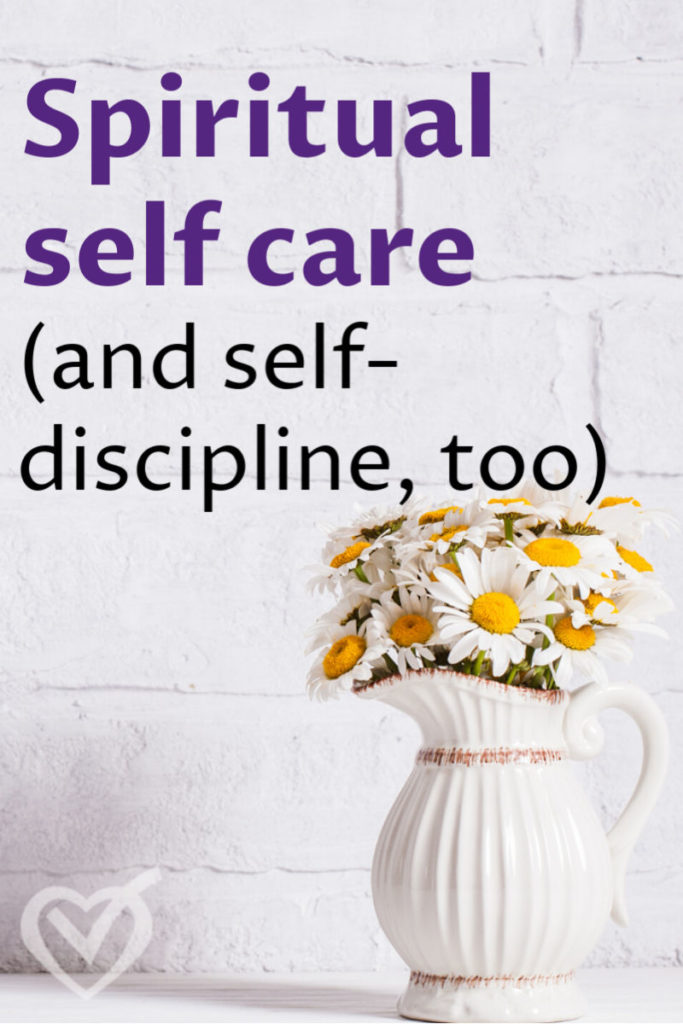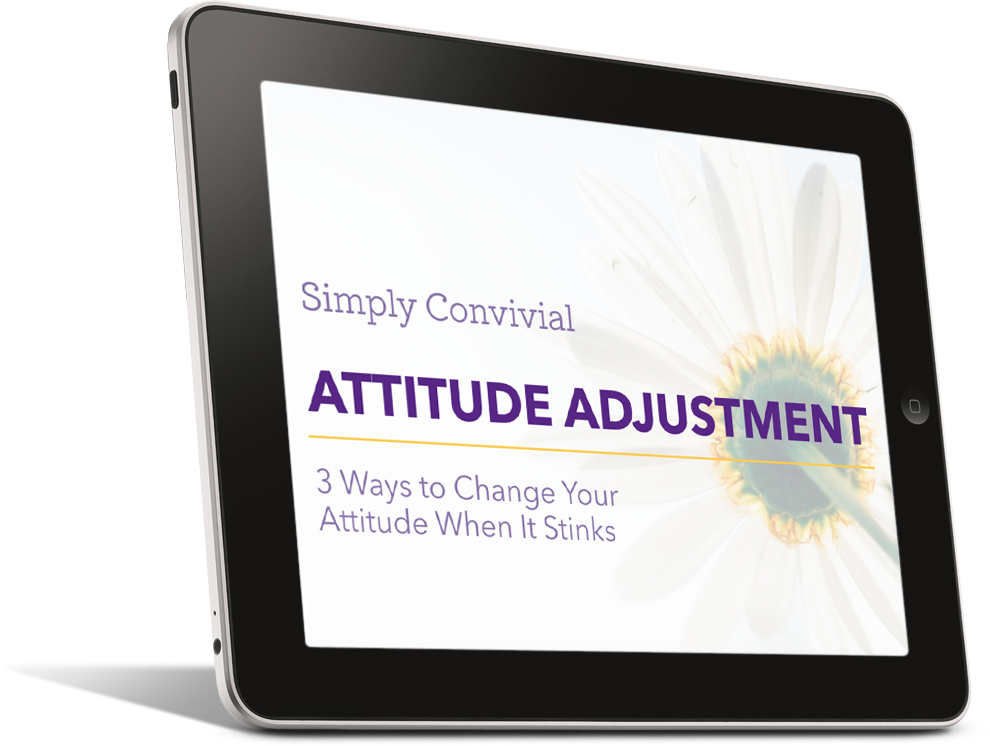Online conversations quickly devolve, and none more quickly than those centering on self-care.
Yet, this conversation has traction and persistence for a very valid reason: We so ardently wish to not burn out, but to continue doing the good work set before us.
We want to be effective.
But we aren’t sure how. We’re weary in the good works God has given us, even though the Bible says we shouldn’t be.

As with most online “discussions,” each person comes to the table with a slightly (or wildly) different definition of the term at hand and we all proceed to discuss it as if definitions don’t matter. But what exactly we’re talking about must be set straight from the get-go if we’re going to have a fruitful conversation that leads us to make better choices.
Listen to this episode:
So, let’s talk about definitions. The truth is that a word or phrase can’t mean whatever you want it to mean. You don’t get to say you believe in eating healthy, but that “healthy for you” means cake and ice cream and nothing green. What we want in our weak moments is usually not what is healthy for us. And in those weak moments we’re good at kidding ourselves.
So it is with self-care.
The goal of self-care that self-care can’t deliver
We know we should be healthy and vibrant and cheerful and resilient. So when we aren’t, we scramble around trying to find the solution. Because life is hard, we think we need to balance it with something easy. Self-care has to be easy. Because life is difficult, we think we need to balance it with some fun. Self-care should be fun.
But this is not reasoning that will take us good places.
In medical circles, self-care refers to the literal tasks we do for our infants but teach them to do by the time they’re in preschool: brush their teeth, use the bathroom, eat fruits and vegetables, drink water, sleep through the night, run around.
Yes, there have been times as a mom where I have skipped brushing my teeth or drinking water because it seemed like just too much.
If you can’t or aren’t doing self-care, it means you need a caregiver to do them for you.
Now, I’ve never actually met a mom who said that a manicure was her form of self-care. However, I have seen women argue that if someone wanted to have a manicure, it could count as self-care for that person.
No. Let’s keep our definitions clear. If we’re going to have a productive conversation at all, we have to distinguish between taking care of ourselves as persons and enjoying luxuries. There’s nothing wrong with enjoying luxuries if you have the chance, but there’s also nothing particularly life-giving about them. People can, have, and do live without them happily. People who have them might be happy and they might be miserable, just like the people who don’t have them.
But we see people who look happy – usually in advertisements, I suspect – having facials, manicures, new cars, vacations, shopping sprees, days out, nights away – and we fall for it. We want to be happy, so we reach toward the enticing images.
Happiness and even real self-care – the kinds of things that keep us healthy as humans – are never going to be found in consumerism or materialism.
Saying luxuries are not self-care is not the same thing as saying they’re bad. It just means we shouldn’t talk about them as if they’re essential to a balanced life and a happy heart.
What we are naturally attracted to or enticed by is not what will actually make us happy. Fulfilling such desires will not make us satisfied or content with our daily duties. They do not refresh the soul, and it is actually our souls that need care most.
We want to be satisfied and renewed. How do we become satisfied and content with our daily duties? How do we renew our minds?
We do not get them by thinking about what we want and then grabbing for the time and resources to get our way. Grabby hands and grabby hearts get no good.
We do ask God, from Whom all blessings flow and Who gives every good gift and every perfect gift. We ask Him to fill our need and then we look for His answer.
Our souls need care.
It is true that our selves do need care. We are not invincible. We are not infinite. We are not indefatigable. However, more than our bodies need care because we are more than our bodies.
When you feel the need for rest and renewal, remember that both come not by indulgence or through merely physical means. When we forget that we are souls, spiritual beings in need of spiritual things, we go looking in all the wrong places for the restoration we know we need.
In the midst of the productivity and the noise and the activity of life, it is our souls that get frayed and neglected. It is our souls that need care. Our souls are not mended by material means, but by spiritual.
- Go to church every Sunday.
- Read the Bible and pray.
- Sing Psalms and hymns and spiritual songs.
- Give thanks in all things.
- Repent of unkindness, pride, and irritability.
- Love others.
- Rejoice always.
Basically, we have to trust God and believe that He knows what He’s talking about when He tells us these things. We can’t claim to need something more or different from what God says we need. He made us; He knows.
Self-care happens when we tell ourselves the truth, when we walk in accordance with truth. It is true we should brush our teeth; it is a lie that we don’t have enough time to do so. It is true that we are created, finite persons who need food and water and sleep and exercise. It is also true that we are created to glorify God and enjoy Him forever.
The lie we too often believe is that enjoying God is not possible or enough.
But when we seek Him, He lets us find Him; He gives us Himself. When we live in line with our created purpose, we find true rest, true delight, and true care.
The truth is that often we are not following the self-care regimen we ought because we are weak and ignorant and foolish. The truth is we do need a caretaker outside of ourselves, because we are not adequate to care for even our own basic needs.
So we respond in faith, putting our trust not in our plan or in our time alone or in ourselves, but in the Good Shepherd who leads us beside still waters and restores our soul.
We find that the Shepherd cares for our souls, and does a much better job than we ever could.
Prayer is the first and most vital soul-care habit we need.
Up next: Choose self-control, not self-care


This is so good. I have been thinking a lot about the idea of “self-care” recently for mothers and how it’s defined even among homeschooling mothers as a day at the spa or a chocolate bar, etc. The more I’ve thought about it, the more I’ve come to the conclusion that that can’t be it. I think you really summed up its true meaning here well.
I just read this because it was linked to your new podcast on self-care/self-discipline, and I’m so glad I did. This is going to change the way I view articles on self-care from now on! Our children do not often feel “pampered” when we teach them to brush their teeth and eat vegetables before dessert, so why do we expect the self-care that’s good for us will feel indulgent? I may want chocolate, but what I need is a good dose of prayer and repentance. Self-care is much better defined as something that will improve/maintain your health (spiritual, mental, or physical) rather than something that feels good in the moment.